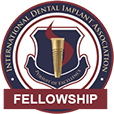Invisalign® and Invisalign Teen® Make You Smile
December 25th, 2018

Many adults and teens in our Lebanon, NJ office would love to have their teeth straightened but are unwilling to go through the long and often embarrassing process of wearing traditional metal braces. Invisalign® and Invisalign Teen® clear aligners offer the perfect solution: They’re the most advanced clear aligner systems in the world!
If you’re considering getting braces, there are several reasons why you might want to consider Invisalign clear aligners. Here are some of them:
- You can eat whatever food you like, without worrying about it catching in wires or breaking brackets.
- People won’t likely be able to tell you’re wearing them!
- The aligners can be removed at any time.
- You can brush and floss as you normally would, which helps to maintain better overall oral health.
- Invisalign aligners are made of a smooth BPA-free plastic and are more comfortable to wear than traditional braces. You’ll need to visit our Lebanon, NJ office less often: only once every six weeks or so.
- With Invisalign Teen, you’ll receive up to six replacements for lost or broken aligners.
Before starting treatment, you’ll have a consultation with Dr. DeCasperis to see if Invisalign or Invisalign Teen treatment is right for you. After that, you’ll have X-rays, pictures, and impressions taken of your teeth.
That information will be used to make the 3D models of your teeth that let Dr. DeCasperis see how they will move throughout the entire treatment and approximately how long it will take.
You’ll receive your aligners based on the treatment plan we recommend. You’ll get a new set of aligners every two weeks. All you need to do is wear your aligners 22 hours a day and you’ll be on your way to a straighter smile in no time!
Ask a member of our Lebanon, NJ team for more information about Invisalign clear aligners today!









